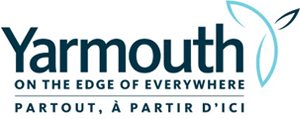Operating Budget 2022-23. A closer look at how budgets come together and why tax rates need an occasional bump.
In this issue, Mayor Mood explains in simple terms how the annual operating budget is prepared for the Town of Yarmouth. At their May 12th meeting, council approved the budget for 2022-23. A great deal of work by staff and council goes into developing the budget each year. Every detail is looked at closely to ensure the town continues to provide a high level of service to residents while focusing on key priorities for the upcoming year. And while they work to accomplish these goals with a lean budget, sometimes higher or unexpected costs call for a small increase in property tax rates. Please take a few minutes today to read this article, as it offers great insight into what is considered at budget time and how significant efforts are made to keep rate increases to a minimum.
Operating Budget 2022-23
While spring time brings us sunny daffodils and the return of freshly mowed grass, here at Town Hall, spring brings us… the “joy” of budget deliberations. Yes, it’s that time of the year when staff hunkers down to pull together the numbers that represent what is required financially over the following months and years to ensure the services the Town provides are appropriately funded so things continue to run smoothly. No small feat.
To put things into perspective, I was asked once what I do and I replied jokingly, “I’m the CEO (Chief Elected Official) of a $125,000,000 organization called the Town of Yarmouth!” The thing is, the joke was on me, because that statement is a fact. The Town assets, made of a great deal of infrastructure, is worth that much. It’s a complex organization made to look easier by the very best staff members, experts in their respective fields, all doing their part to ensure the Town runs efficiently and effectively. These experts make my job easy and myself and Council have a tremendous amount of respect for each of them. Thanks to each of you.
Budget explained in simple terms? I’ll give it my best shot. The CEO and CFO meet with our department heads and get a list of the needs of each department not just for the coming year, but years down the road. It’s important to know what’s coming, after all. The numbers are put together, crunched, moved around and when the CFO finally lands on a budget that’s a great starting point, it’s brought to Council.
It is then Council’s job to make sure the budget provides funding for our priorities – priorities that are usually set at the beginning of each Council’s mandate, and revisited as we cross things off the never-ending list. We ask questions like “What is most important to our citizens?” “What are our citizens supportive of?” We listen and balance what we hear with what will help our Town move forward and grow and we balance it with the funds available. It’s not difficult to figure out what we need to do. The difficulty comes when we bump into the always-present challenge of our wants exceeding our bank balance. Unlike Federal and Provincial governments, municipal governments cannot run deficits, so doing all we both need and want to do has to be done within our means.
We’ve all experienced inflation lately. Things like power, insurance, fuel (yikes!) are all climbing faster than we can keep up with. It’s true in your home and it’s true for the Town. Insurance alone for the Town jumped from $324,000 to $377,000 this year. RCMP jumped from $2,464,000 to $2,750,000 and takes up nearly 15% of our entire budget. Wages, recreation, street and sidewalk maintenance, the airport, Mariners Center all add over $6,700,000 to the budget. Fire services are $1,156,700. Whopping numbers.
Over 80% of the budget pays for things the Town has little to no control over. Over $1,300,000 is paid out to the Province for education. We pay for housing, corrections, library and more, all of which is directly billed.
We fund our budget primarily through taxation – residential and business – which makes Council’s decisions on the budget even more focused as we understand fully that the monies we have to work with come from the public purse.
When our needs (and some wants) exceed our funds, we have to be creative. This year, after much deliberation, we raised the tax rate by two cents. That amounts to $88,000 more in the budget, which is little given the hundreds of thousands in increases to our bottom line. Councils never want to put the tax rate up, but it’s a must this year and we are proud of the top-notch services being provided by our small Town on such a tight budget.
Of all 25 Towns in Nova Scotia, we are the 11th lowest in taxation. I say that proudly. Towns are different as we are economic hubs. That means we provide services and opportunities for the entire region. Our population of 6700 goes up every weekday to over 20,000 as folks come into town to work, shop, play and more. We love the hustle and bustle and even more, we love that so many call Yarmouth “my town”. While there is a cost to doing business, we are thankful to be able to take that on.
I’ll finish by saying that the Town of Yarmouth’s population increased over 5% since the last census, the first increase since the 1990s. That is not accidental. The changes we have made have drawn people to what I always refer to as the best piece of real estate on earth. A downtown revitalization, colour, active transportation, colourful shops and residences, the very best gardens, top-notch services… the list is long. Add to that our friendly, welcoming people and it’s no wonder folks are flocking to our beautiful Town. The work we are doing is seeing excellent results.
The budget was passed last week. Many meetings, lots of reading, poring over numbers, tons of questions to staff, great open discussion among Council, all leads to a budget we can be proud of as we continue to build our amazing community. Now it’s time to roll that budget out and get the work done!
From the Mayor’s Desk is a regular column from Yarmouth Mayor Pam Mood that serves to inform residents and celebrate community.
2022-2023 Operating Budget: Key Facts
- At the May 12th meeting, council approved a budget with revenues in the amount of $18,760,768 and expenses of $18,755,768 for a surplus of $5,000. This amount is for general operations for the year ending March 31st, 2023.
- The budget included a small property tax increase, up only slightly by 2 cents over the previous rate. The new rate is $1.69 per $100 of Assessment for residential, $4.31 per $100 Assessment for Commercial.
- For homeowners, the increase amounts to about $25 per year for the average household.
- The 2-cent increase adds an additional $88,000 to the operating budget (about 0.4% of the budget). This is a small increase when considering rates of inflation which have led to number of significant cost increases for the town for the town.
- Some of those increases include:
o Increase of $53,000 for insurance
o RCMP services increased from 2.4 million to 2.7 million (15% of the overall budget)
o Increased fuel costs which affect the delivery of all services - Over 80% of the operating budget pays for things the Town has little to no control over in the short term. For example, over $1.3 million is paid out to the province for education. The town also must pay the province for a portion of housing, corrections, the public library, and more.
- Of all 25 towns in Nova Scotia, Yarmouth is the 11th lowest in taxation.
You can view a detailed breakdown of the operation budget.
The full list of tax and utility amounts for the year can be found on our Tax and Utilities page here: Taxes and Utilities.
Do you have a question about the operating budget? Email us: comms@townofyarmouth.ca

